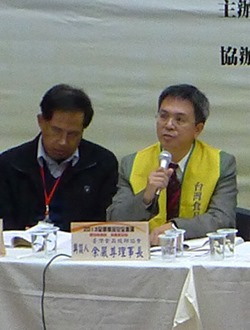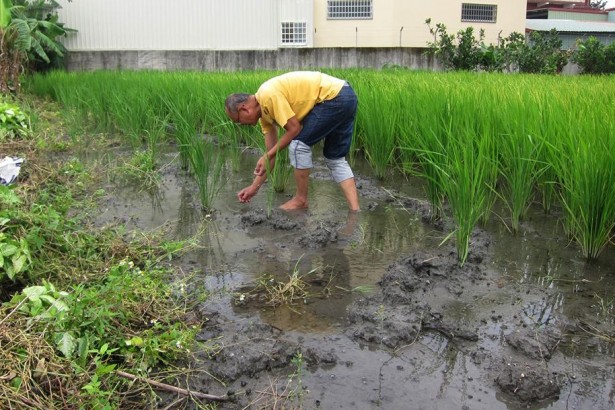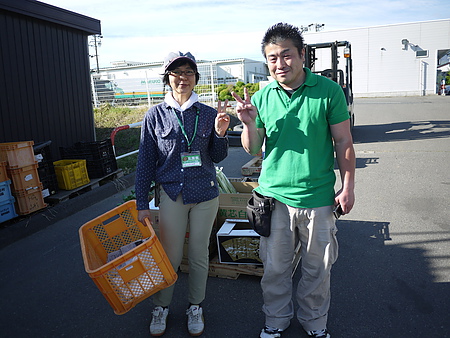Independent food inspection will hit the road next year, but the industry is not optimistic.
Share194 + 1 Tweet1 EmailShares 195
In order to enhance food safety, the Food and Drug Administration of the Ministry of Health and Fuzhou announced a new draft last week, introducing a "three-level management" system, requiring aquatic products, meat processing, dairy processing, food additives and other industries to independently inspect raw materials every quarter or every batch. However, relevant operators believe that this is only an increase in costs, and people who really want to break the law will not take problematic products for inspection, and the increased costs may also be passed on to consumers. Even the use of cheaper raw materials of lower quality does not help to improve food safety.
The first wave targets aquatic products, meat, dairy products, food additives and special nutritious foods.
In recent years, there have been frequent food safety incidents in Taiwan. when the Ministry of Health and Health amended the Food Safety and Hygiene Management Law last year, it required specific operators to submit raw materials to a third party for inspection on a regular basis, that is, a "three-level management system." the first level is the independent management of the industry, the second level is the verification of the third-party laboratory, and the third level is inspected by the government. The supporting measures were announced last Wednesday and are expected to come into effect on December 31, and comments can be submitted to the Food and Drug Administration within a month.
According to the draft "Food traders to be inspected, minimum Inspection cycle and other related matters", the aquatic food industry, meat processing food industry and dairy processing food industry with factory registration certificates must test animal drug residues in their products; manufacturers and importers of all food additives test the content of heavy metals in finished products The special nutrition food manufacturer who has obtained the inspection and registration permit shall test the content of microorganisms and nutrients in the finished products.
The inspection frequency is quarterly or at least once per batch, and the operator may inspect it himself or entrust a non-governmental inspection unit, but the inspection method must be used by the competent authority or internationally recognized; the operator must keep the inspection record until 6 months after the effective date of the food.
Wu Xiwen, head of the Food Section of the Food and Drug Administration, said that these are all food categories with relatively high risks, and in theory, operators should inspect them once every three months, but considering the different characteristics of the products, if they cannot be tested quarterly, they will only carry out batch-by-batch inspection. Violators can be fined NT $30,000 to NT $3 million, hoping to curb unscrupulous manufacturers from the source.
Industry: no help to improve food safety


Yu Yanzun, chairman of the Food technicians Association (pictured on the right). Photography / Lin Huizhen)
However, this law increases the costs of operators, and there was a lot of backlash before it was passed last year. Wu Yuxin, R & D manager of Xiecheng Chemical Co., Ltd., which specializes in food additives, felt very helpless after hearing the announcement of the draft. Although the company will certainly follow the law, but he said that this is "meaningless", because food additives coming in from abroad should be checked and registered with the Ministry of Health and Welfare to meet the specifications. To get a license to sell.
Wu Yuxin believes that in addition to heavy metals, food additives may also have other ingredients, and the synthesis and production methods of each product are different, and the harm that may occur is also different. The Ministry of Weifu only blindly applies heavy metal testing to all additives, which is of little help to food safety, and the industry may also transfer the cost to consumers.
Yu Yanzun, chairman of the Food technicians Association, is not optimistic about this measure. "the quality is not tested." he said that operators who really want to break the law will fake and send unproblematic raw materials for inspection, and consumers will feel at ease when they see the inspection report. but in fact, the food safety problem has not been solved at all. Worst of all, the cost of the operator increases, and if the operator lowers the price, the operator can only save labor costs, or even replace it with lower-quality raw materials, and consumers will be harmed in the end.
Yu Yanzun said earnestly that this is a waste of too many social resources, which is not a good practice, and it is difficult for small-scale operators. The Ministry of Weifu should imitate the accounting system and set up a "visa food technician." allowing outside technicians to check the data submitted by factory-based technicians, coupled with irregular spot checks on end food, is more efficient than independent inspection.
Food and Drug Administration: food with higher risk should be managed with high standards
However, some people think that the new measures will not add too much cost. Cai Zuohong, general manager of Sifang fresh Milk, said that the new law only legalizes what dairy producers are doing every day. A cart of raw milk may come from 3 or 4 different cheese farmers, and larger dairy producers will test the use of animal drugs one by one every day. If they do not meet the requirements, cheese farmers should be held responsible, and Sifang fresh milk is a GMP certified manufacturer. All inspection reports need to be retained for half a year, and the new law does not have much impact.
Wu Xiwen said that according to the proof given by the supplier, the operator has the responsibility to reconfirm that quarterly inspection is already a minimum. This is only the first step in food safety control. Operators must still have internal quality control measures, and the FDA will conduct random checks in the market from time to time. Violation of the "Food and Drug Law" will still be punished.
Wu Xiwen stressed that foods with higher risks must be managed with high standards, so they must be inspected regardless of their size, and if there is factory registration, they themselves have a certain scale. They will be reassessed in the future to see whether they are included in other categories. In addition to fines, violators can also revoke their registration license under serious circumstances, and they are not allowed to apply again within a year.
Share194 + 1 Tweet1 EmailShares 195
Related
- A course of planting techniques and methods on how to grow carrots
- How to plant the latest tulips?
- Is it better to pick tea in the morning or in the afternoon? When is the best time for tea to be picked? what is the third or fifth tea?
- Launch Yuanxiao Happy combination Haocha + Tea Yuan healthy Taste
- Penghu Tourism "Fireworks 20 Parade with You"
- 2022 West Lake Happiness holds "Digital Revitalization Voucher" and draws iphone13 and laptop.
- Banqiao Fuzhou social houses are designed to change start-up combined with police elimination to create a safe and livable environment
- The convenient measure of "mechanical weeding" in Xinbei has been abused and the Agriculture Bureau has imposed heavy penalties on the illegal land consolidation.
- Changgeng University Joins Hands with Four Memory Factories to Rescue Memory Talent Shortage
- The list of Taiwan's top 100 MVP managers is listed by the Director-General of the Farmers' Association of Sanxia District.



